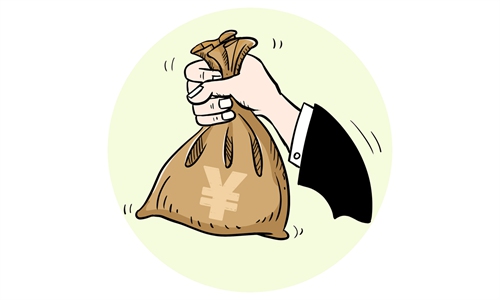Vulgar remarks concerning Ukraine exploited, amplified by Taiwan and Xinjiang separatist forces to hype anti-China sentiment: experts

People sleep in the Kyiv subway, using it as a bomb shelter in Kyiv, Ukraine, Friday, Feb. 25, 2022.Photo:VCG
Click here to stay tuned with our live updates on Ukraine tensions.Vulgar remarks concerning Ukraine made by a very small portion of netizens on China's social media - which have been overwhelmingly criticized in China - are wrongly amplified online, and the real instigators of hyping "confrontation between Chinese netizens and Ukraine people" were from Taiwan and Xinjiang separatist forces, observers revealed on Sunday.
The reason why some vulgar comments on Ukraine that were circulating on China's social media platforms, which were only posted first by a very small number of irrational individuals, grabbed world attention was because of the fabrication and exaggeration made by some Twitter accounts and SupChina, a US-based digital media company, who are Taiwan and Xinjiang separatist advocators, Lei Xiying, director of the Hong Kong-based China Cross-Strait Academy revealed in an article.
The article was reposted on the official WeChat account of the center for handling reports of illegal and harmful information under the Cyberspace Administration of China (CAC) on Sunday.
Such vulgar comments grabbed attention because Twitter accounts including MeMeTaiWan and Karwan70446933 re-posted vulgar comments made by some irrational individuals on China's social media. Subsequently, SupChina blew it up out of all proportion in an article on February 24 titled "Some Chinese men express their horniness for potential Ukrainian refugees, to the disgust of netizens," the article reads.
SupChina later changed the headline of the article, although it remains online under the original link.
Such public opinion and false impression of "Chinese people's opposition to Ukraine" manipulated by SupChina and some Twitter users with an anti-China background, has since been fermented and amplified on Chinese social media and Western media.
Lei's exposure comes at a time when the outside world including Ukrainians wrongly interpreted the vulgar content that comes from some individual irrational netizens and hype generated by separatist forces - as a voice representing a majority of Chinese. There are reportedly signs of anti-China sentiment in Ukraine which places Chinese students in danger, according to media reports.
The Global Times found the real picture that shows those vulgar remarks concerning Ukraine is that they only came up from a few individual netizens, and after those posts - which stir up hatred, antagonism and conflicts relating to the Russia-Ukraine situation, such as "joining the war in Ukraine could gain scores," "Ukraine beauties coming to China" - were circulated online, those irrational voices received overwhelming criticism in China.
Chinese social media platforms - WeChat, Sina Weibo and Douyin - since Friday have been calling for rationality on cyberspace, and imposed penalties on some accounts that were spreading false information and abusive content on the matter.
Shen Yi, deputy director of the Fudan University Cyberspace Research Center, told the Global Times on Sunday it is not the first time and will not be the last that Taiwan and Xinjiang separatist forces launched this systematic information fabrication on social media, which usually mixes facts and fictional information together or fabricates fake information that completely contradicts the facts.
Their systematic way of generating false information can achieve nothing but pouring more negative false content to cause more chaos on cyberspace. Actually, not only China, but the international community are victims of false information, Shen said, calling to establish a mechanism or culture to address challenges brought by false information and leave no chance for the abuse of false information to take up freedom of speech in cyberspace.
WeChat condemned the posts for provoking public emotion and causing a severe negative impact on cyberspace in a notice on Friday. Short-video platform Douyin, the Chinese version of TikTok, slammed a small proportion of accounts for "taking others' pain as a laughingstock."
In three separate statements released on Friday and Saturday, Sina Weibo also condemned similar comments on its platform, calling them improper and unfriendly language advocating confrontation. Weibo also slammed some accounts for releasing and prompting scorn, hatred and war content under the comment areas of embassies.
Sina Weibo, in three batches, screened out 542 posts, 622 posts, 242 posts and 359 comments, and punished 74 accounts, 105 accounts and 83 accounts because they had posted vulgar content about Ukraine and the Russia-Ukraine situation. Douyin on Saturday said it removed 6,400 illegal videos, interrupted 1,620 illegal livestreams, and disposed of accounts that ridiculed the Ukraine tensions as well as promoting hatred and gender antagonism.
"The words and deeds of everyone present an image of a country in some way thus we are obligated to safeguard a sound social environment," Weibo wrote in a statement.



